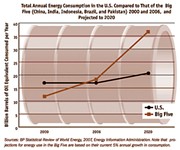Corporate Takeover
Walter Prescott Webb Told Us So
By Robert Bryce, Fri., March 13, 1998
| As Walter Prescott Webb predicted, once corporations are granted the same privileges as people, they become superior to individual citizens. |
In an essay in the March 1 issue of the New York Times Magazine, former Treasury Secretary Roger Altman pointed out that the ongoing alignment of world markets could pose a bigger threat to America's national security than any dictator or nuclear weapon. "Markets" wrote Altman, "have emerged as the ruling international authority, more potent than any military or political power."
While neither writer mentioned the Multilateral Agreement on Investment in their articles, their warnings are clearly focused on the ability of corporations to move in and out of countries with impunity. Despite the potential for the MAI to realign global markets and supersede local laws, there has been almost no discussion of the MAI and corporate power in the mainstream press. But the articles by Kaplan and Altman - neither of whom can be considered a leftist - show that the issue of corporate power is beginning to resonate. But they're not the first writers to focus on this issue. In fact, one of the best treatises ever produced on corporate power was written 50 years ago by a Texan, Walter Prescott Webb.
In his 1947 book, Divided We Stand: The Crisis of a Frontierless Democracy, the former University of Texas history professor wrote about the history of corporations and their legal status under the U.S. Constitution. Webb explained that before 1886, when the Supreme Court decided that corporations were to be given the same protections as individuals, states and counties could levy taxes on corporations as they saw fit. (The case that decided the matter involves a tax that was levied on the Southern Pacific Railroad by Santa Clara County, California.) Webb points out that it was the 14th Amendment, which was designed to free slaves after the Civil War, that helped give corporations the same privileges and immunities as individuals. The 14th Amendment says that no state can deprive any "person of life, liberty or property, without due process of law; nor deny to any person within its jurisdiction the equal protection of the laws."
The key issue for corporations in the late 1880s, writes Webb, was to get the courts to see them as "persons" under the 14th Amendment. Once that was done, they would be granted the same legal status as ordinary citizens, meaning that under the equal protection clause, they could operate in multiple states without fear that one state might tax or regulate them more stringently than another. Once the Supreme Court extended that protection to companies, wrote Webb, the corporations were "taken under the protecting wing of the federal government. The states could no longer get at them; they could be neither controlled nor punished by local governments."
Webb's analysis is prescient when it comes to the MAI, because this agreement would grant corporations immunity from local regulation on a global scale. If, for instance, one country's environmental laws are too strict, under the mandates of the MAI, a corporation may sue the national government for any profits lost due to laws which discriminate against them. The MAI threatens workplace laws, environmental laws, climate change agreements, fishing treaties, and a whole range of local legislation.
So far, 600 non-governmental organizations have united to oppose the MAI. And they are opposing it for the same reasons that Webb outlined 50 years ago. As Webb predicted, once corporations are granted the same privileges as people, they become superior to individual citizens. Imagine if a person went to Canada, for instance, and decided he or she did not want to obey Canada's speed limit law. That person would have a difficult time suing Canada in order to allow him to go faster than the law allows. But under the MAI, that is precisely what corporations would be allowed to do.
In other words, under the MAI, corporations will become a type of "superhuman" endowed with broad legal powers, immense wealth, and no responsibilities to the communities in which they operate. All of which reflects back on the 1886 court decision. "Having made the corporations equal to natural persons by definition," wrote Webb, "it has proceeded to make them superior by logic."
Given the rush by the world's biggest companies to pass the MAI, one wonders what Webb would say today. Webb - who is immortalized in a statue at the entrance of Barton Springs Pool - along with his friends Roy Bedichek and J. Frank Dobie - was never one to shy away from a controversy. And given the broad reach of the MAI and its potential to increase the power of corporations, Webb would undoubtedly be leading the charge in opposition to it.
Kaplan's Atlantic Monthly article is on the Internet at http://www.theatlantic.com/issues/97dec/democ.htm.
Got something to say on the subject? Send a letter to the editor.








